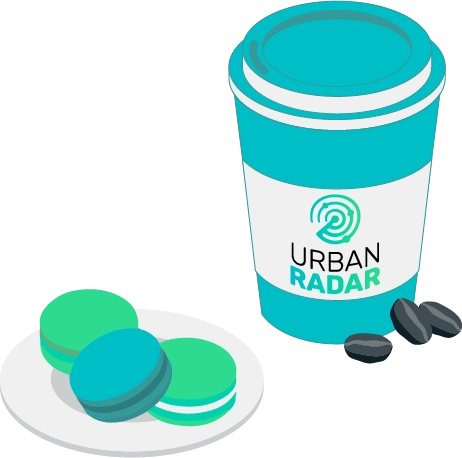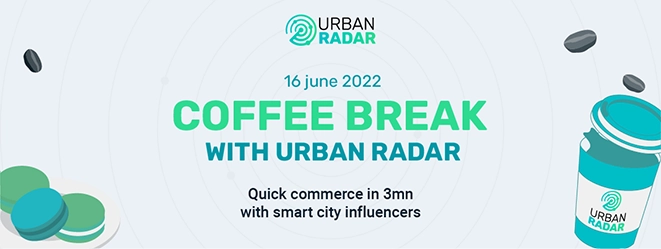What are we talking about today ?
- Quick commerce is the ultra convenience of <10 min grocery delivery services popular in major cities
- Limited turnover compared to the grocery market BUT a 85% CAGR 2020/2021
- A ~2 years industry, with multi-billion euros valuation companies reminiscent of the early days of the e-scooters industry
- Requires small urban logistics hubs in city centres (~400m2): the dark stores
- Deliveries are made by bikes, e-bikes and moped
The Investor’s view
RedBlue Capital, USA
Reflecting on the wave of Q2 2022 layoffs throughout the industry, Redblue sees quick commerce not making economic sense but potentially evolving to a loss leader for groceries.
The Public Sector’s view
France Urbaine (3,000 cities in France)
Cities are concerned that quick commerce will replace lively shops with black windows logistics centres. It will create ghost towns which are countering the efforts made in the past decade to bring city centres back to life.
The operator view
Gorillas, Benelux
In response to the city of Amsterdam’s one-year freeze on the opening of new “dark stores”, Gorillas responds that they are one of the top 250 largest employers in the Netherlands, that they increase market shares of local independent entrepreneurs, and that they foster neighbourhood cohesion.

Urban Radar's takeway
Undoubtedly, the business of convenience is growing, and in hyper urban centres, the lines between restaurant food delivery, grocery delivery, and quick commerce are blurring. Whether quick commerce companies grow, survive or fail ultimately depends on their ability to build a common ground with regulators : they need to avoid blanket operating bans like those currently enforced by Amsterdam and Barcelona .
European operators have turned to Urban Radar to facilitate the conversation and we are confident that the dots between operators and cities can be joined.
Multiple cities have also been reaching out to Urban Radar to make sense of the quick commerce delivery trends. They want data driven insights to:
European operators have turned to Urban Radar to facilitate the conversation and we are confident that the dots between operators and cities can be joined.
Multiple cities have also been reaching out to Urban Radar to make sense of the quick commerce delivery trends. They want data driven insights to:
- Review the operator’s compliance with zoning and land use regulations
- Inform curb management policies to mitigate the impacts on the neighbourhoods
- Understand (anonymised and aggregated) traffic flow to experiment with new road allocation policies
Quick commerce companies will continue to push cities to think differently and act fast because they need to make good to their exponential growth promises to their VC investors. In the long run, the resulting friction will be eased by using unbiased data to collaborate and inform the industry’s future development.

